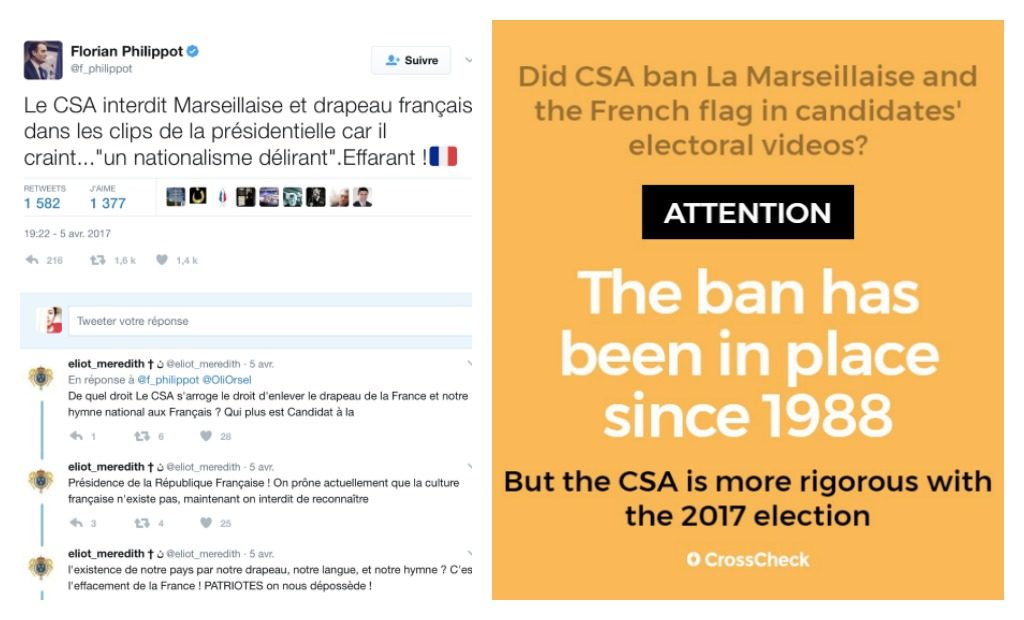A controversy surfaced this week on social media: France’s Superior Council of Audiovisual content (CSA) has forbidden the use of the national anthem and flag in candidates’ campaign videos for the French presidential election. This information was relayed by Front National’s vice-president Florian Philippot. However, the ban has actually been in place since 1988.

(Translation: ‘The CSA forbids the Marseillaise [French national anthem] and French flag in campaign videos for the presidential election because it fears… “frenzied nationalism”. Baffling!”)
The controversy arose after the publication of an article by the French newspaper L’Opinion. On April 4th it wrote: “the Superior Council of Audiovisual content has forbidden the use of flags in the candidates’ official video clips.” The weekly paper explains that “what surprised all campaigners is cited in Article 9: the ban on the portrayal of any national or European emblem.”
Yet, this standard is by no means new. Contacted by CrossCheck, the CSA explained that these rules are “known to the candidates” and they “have been in place since 1988”. The organisation reminds us that the ban concerns anthems, flags and French and European institutions. The goal, according to the CSA, is to “protect the state’s official and institutional symbols, so to prevent their use for electoral purposes.”

(Translation: ‘The ban on the use of anthems and flags in campaign videos exists since 1988’ [Sylvie Pierre-Brossolette is a member of the CSA]. (Screenshot)
The L’Opinion article mentions the existence of this ban. The newspaper explains that “whilst the rule existed in past electoral campaigns, the regulator had chosen to be lenient.” The CSA has chosen to be stricter in the 2017 presidential campaign. This is to avoid – according to a source cited by L’Opinion – “certain campaigns capitalizing upon frenzied nationalism.” This same source reminds us that in 2012 Nicolas Sarkozy sparked controversy with his campaign video in which the word “customs” written in Arabic appeared.
This article arose in response to a question on this topic submitted to CrossCheck by a web user.





